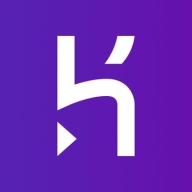

Heroku and Red Hat OpenShift are competing in the cloud platform space, focusing on application hosting and management. Heroku excels in ease of use and competitive pricing, while Red Hat OpenShift has an edge due to its robust feature set appealing to enterprises.
Features: Heroku is valued for its simplicity, seamless integration with Salesforce, and a diverse add-on marketplace. Red Hat OpenShift shines with its scalability, advanced security, and support for hybrid cloud deployments, offering flexibility with comprehensive features suitable for complex enterprise needs.
Room for Improvement: Heroku could improve by offering more advanced deployment options, enhancing its enterprise-level features, and providing more comprehensive customer support. Red Hat OpenShift would benefit from simplifying its deployment model, reducing initial setup costs, and enhancing its user interface for less tech-savvy users.
Ease of Deployment and Customer Service: Heroku provides a streamlined deployment process with a user-friendly interface, making it ideal for developers. However, its customer service is somewhat basic. Red Hat OpenShift offers a more intricate deployment model but compensates with strong enterprise-level support, catering to organizations needing solid infrastructure and comprehensive deployment options.
Pricing and ROI: Heroku is cost-effective for small to medium projects with transparent pricing models, offering good ROI. Red Hat OpenShift, while involving higher setup costs, delivers significant ROI for large enterprises, providing comprehensive capabilities justifying its investment for businesses with extensive scalability needs.


Established in 2007, Heroku is a cloud application platform providing a streamlined, efficient place for web app developers to create and deploy their applications. Heroku is designed to maximize developer productivity. With the entire web application development process available on the Herokucloud, creating and rolling out web apps has been made more efficient, convenient, and cost-effective than ever before.
Red Hat OpenShift offers a robust, scalable platform with strong security and automation, suitable for container orchestration, application deployment, and microservices architecture.
Designed to modernize applications by transitioning from legacy systems to cloud-native environments, Red Hat OpenShift provides powerful CI/CD integration and Kubernetes compatibility. Its security features, multi-cloud support, and source-to-image functionality enhance deployment flexibility. While the GUI offers user-friendly navigation, users benefit from its cloud-agnostic nature and efficient lifecycle management. However, improvements are needed in documentation, configuration complexity, and integration with third-party platforms. Pricing and high resource demands can also be challenging for wider adoption.
What are the key features of Red Hat OpenShift?Red Hat OpenShift is strategically implemented for diverse industries focusing on container orchestration and application modernization. Organizations leverage it for migrating applications to cloud-native environments and managing CI/CD pipelines. Its functionality facilitates efficient resource management and microservices architecture adoption, supporting enterprise-level DevOps practices. Users employ it across cloud and on-premises platforms to drive performance improvements.
We monitor all PaaS Clouds reviews to prevent fraudulent reviews and keep review quality high. We do not post reviews by company employees or direct competitors. We validate each review for authenticity via cross-reference with LinkedIn, and personal follow-up with the reviewer when necessary.